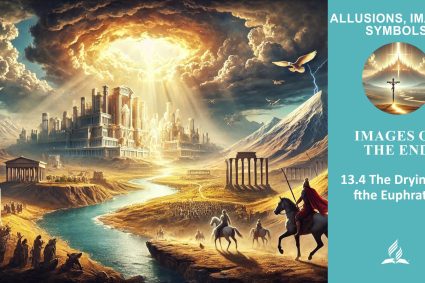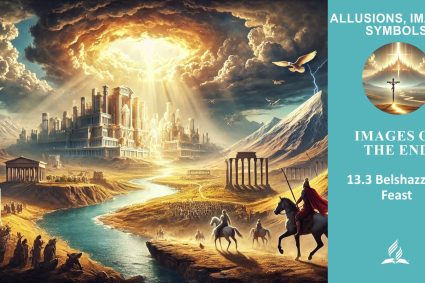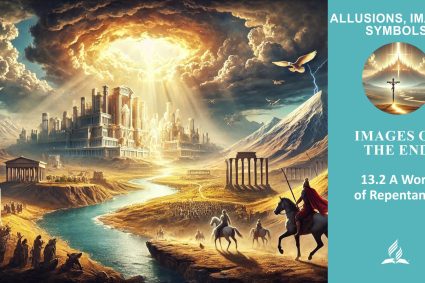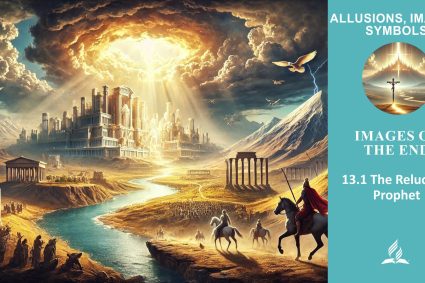
6.5 The Lord’s Judgment and the Sanctuary
Read Psalm 96:6–10; 99:1–4; and 132:7–9,13–18. Where does God’s judgment take place, and what does the answer to this question mean for us? How does the sanctuary help us understand how God will deal with evil?
Psalms 96:6–10; 99:1–4; and 132:7–9,13–18 provide insights into the themes of the judgment of the Lord and the sanctuary. These Psalms emphasize the holiness of God and His sovereign actions in connection with judgment and the sanctuary.
-
The Judgment of the Lord: In these Psalms, God’s judgment is described as something that goes beyond the entire world. His rule is not confined to a limited space but extends over all nations. God’s judgment takes place to establish justice and righteousness. It is a manifestation of His sovereignty and holiness.
-
Where Does God’s Judgment Take Place? God’s judgment is depicted in the context of His rule and sovereignty. It is not limited to a specific geographical location but permeates the entire cosmos. The Psalms emphasize the omnipresence and universality of God’s judgment, reaching all peoples and nations.
-
The Significance for Us: The realization that God’s judgment takes place everywhere should evoke in us a reverence for His holiness and sovereignty. It reminds us that there is a just Judge who stands above all and will ultimately ensure justice. This can give us hope, especially in times of injustice and suffering.
-
The Sanctuary: The mention of the sanctuary in Psalm 99:1 underscores the holiness of God. The sanctuary was, in the biblical context, the place where the presence of God was particularly felt. It symbolizes purity, holiness, and God’s inaccessibility to the unholy.
-
How Does the Sanctuary Help Us Understand How God Will Deal with Evil? The sanctuary serves as a symbol of God’s holiness and His absolute separation from all evil. It shows us that God does not dwell in evil; instead, He judges and punishes it. God’s holiness in the sanctuary highlights His purity and His aversion to evil.
Overall, these Psalms teach us that God’s judgment is omnipresent and sovereign. The emphasis on God’s holiness in the sanctuary illustrates that God does not tolerate evil and that His judgment is shaped by His purity and righteousness. This can encourage us to trust in God’s sovereignty and find hope in His justice.
The Psalms underscore the close connection between God’s judgment and the sanctuary. For the psalmist, the sanctuary was not just a physical place but also the space where their understanding of the problem of evil and God’s redemptive plans were transformed (Psalm 73:17–20).
The sanctuary is depicted as the site of divine judgment, symbolized by instruments like the Urim and the breastplate of the high priest. Many Psalms portray God on His throne in the sanctuary, ready to judge the world due to its sin and wickedness.
The sanctuary reveals God’s plan of redemption, which stands in contrast to pagan notions of forgiveness of sins. In the Bible, sin is considered a violation of God’s moral law. God’s holiness demands justice and righteousness, which His people are also called to pursue by keeping God’s law.
The sanctuary is the place of forgiveness and restoration of righteousness, symbolized by the mercy seat of God’s throne and the “right sacrifices.” However, God’s forgiveness does not exclude the fact that He takes vengeance on the evil deeds of unrepentant individuals.
The Psalms emphasize the constant awareness of God’s holiness and the necessity of a righteous life according to the requirements of His covenant. The divine judgment from Zion results in the well-being of the righteous and the defeat of the wicked. The Psalms promote a joyful expectation of God’s arrival as a judge, especially on the Day of Atonement. They also strengthen the certainty of the impending arrival of the divine judge, identified as Jesus Christ in the heavenly sanctuary.
In conclusion, these Psalms teach us that the sanctuary is not only a physical place but also a spiritual space where God’s judgment and His redemptive plans are revealed. They encourage us to lead a life of justice and worship according to God’s holiness and to maintain the joyful expectation of the arrival of the divine judge.
Read Romans 8:34. How does this verse show us that what Christ does in the heavenly sanctuary is good news for His people?
In Romans 8:34, it says: “Who is to condemn? Christ Jesus is the one who died—more than that, who was raised—who is at the right hand of God, who indeed is interceding for us.” This verse shows us that what Christ does in the heavenly sanctuary is good news for His people for several reasons:
-
No Condemnation: The verse begins with the rhetorical question of who could condemn. The answer is that no one can. The fact that Christ died for us, was raised, and is at the right hand of God means there is no condemnation for those who are in Him. His sacrifice has erased the guilt of believers.
-
Christ as Mediator: The verse emphasizes that Christ is at the right hand of God and interceding for us. This position at the right hand of God symbolizes authority and power. Christ serves as a mediator for believers, standing before God and advocating for them. His role as an intercessor means he advocates for those who trust in Him.
-
Divine Support: Christ’s presence at the right hand of God signifies divine support for believers. His exaltation illustrates that His mission of redemption has been fully accepted. His service in the heavenly sanctuary ensures that those who belong to Him receive divine assistance and care.
-
The Message of Grace: The verse underscores the message of grace. Instead of facing condemnation, believers gain forgiveness and acceptance through Christ. His intercession in the heavenly sanctuary is a constant testimony to the undeserved grace of God granted to believers.
Overall, Romans 8:34 shows us that what Christ does in the heavenly sanctuary is good news for His people, bringing forgiveness, support, intercession, and the assurance of God’s grace. It heralds a hopeful reality for those who believe in Him.
(Visited 22 times, 1 visits today)




















